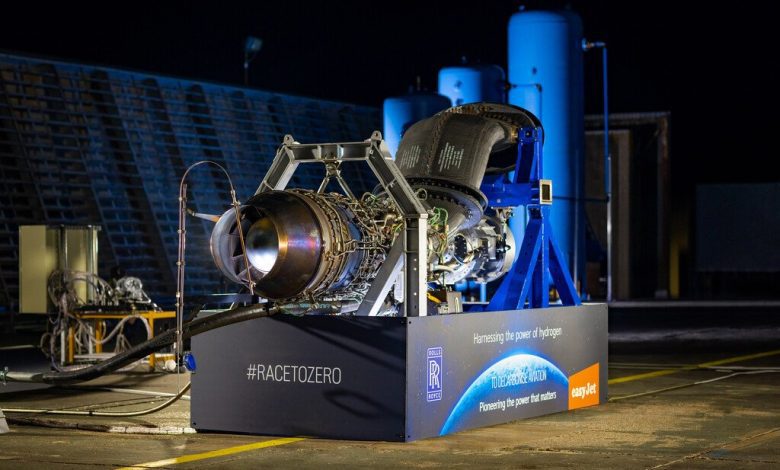Rolls-Royce and easyJet: the world’s first test of a modern hydrogen fueled aircraft engine

Rolls-Royce and easyJet have confirmed that they have achieved a new milestone in the field of aviation with the world’s first test of a modern aircraft engine that uses hydrogen as fuel. The ground test was conducted on a demonstration model using green hydrogen generated by wind and tidal energy.
This is an important step towards proving that hydrogen can be a carbon-neutral aviation fuel of the future and represents a key test point in both Rolls-Royce and EasyJet’s decarbonization strategies. Both companies wanted to prove that hydrogen could safely and efficiently power civil aircraft engines and are already planning a second round of testing, with a long-term ambition for flight trials.
The test was conducted at an outdoor test facility at the British Ministry of Defense Boscombe Down, UK, using a Rolls-Royce AE 2100-A regional aircraft engine. The green hydrogen for the experiments was provided by the European Marine Energy Center (EMEC), which was built using renewable energy at the Tidal Test and Hydrogen Production Facility at Eday, Orkney, UK.
Grant ShappsThe Secretary of State for Business, Energy and Industrial Strategy said:The UK is leading the global shift towards guilt-free flying and today’s test of Rolls-Royce and EasyJet is an exciting demonstration of how commercial innovation can transform the way we live our lives“.
Grace Vittadini Rolls-Royce’s Chief Technology Officer said:The success of the hydrogen test is an exciting milestone. We only announced our partnership with easyJet in July, and we are already at the beginning of our launch with this historic milestone. We are pushing the envelope to discover the possibilities of carbon-free hydrogen, which could help reshape the future of aviation“.
Johan LundgrenCEO of easyJet, said:This is a real success for our partnership team. We are committed to continuing to support this groundbreaking research because hydrogen offers significant possibilities for a range of aircraft, including those as big as the EasyJet. This will be a big step towards meeting the challenge of zero emissions by 2050“.
After analyzing this first ground test, the partnership plans a series of additional factory tests leading up to a large-scale ground test of the Rolls-Royce Pearl 15 engine. The partnership builds on the global hydrogen research and development project. The partnership builds on the United Nations-backed “Race to Zero” global campaign, which the two companies have signed to commit to being net net carbon emissions by 2050.

“Devoted bacon guru. Award-winning explorer. Internet junkie. Web lover.”



